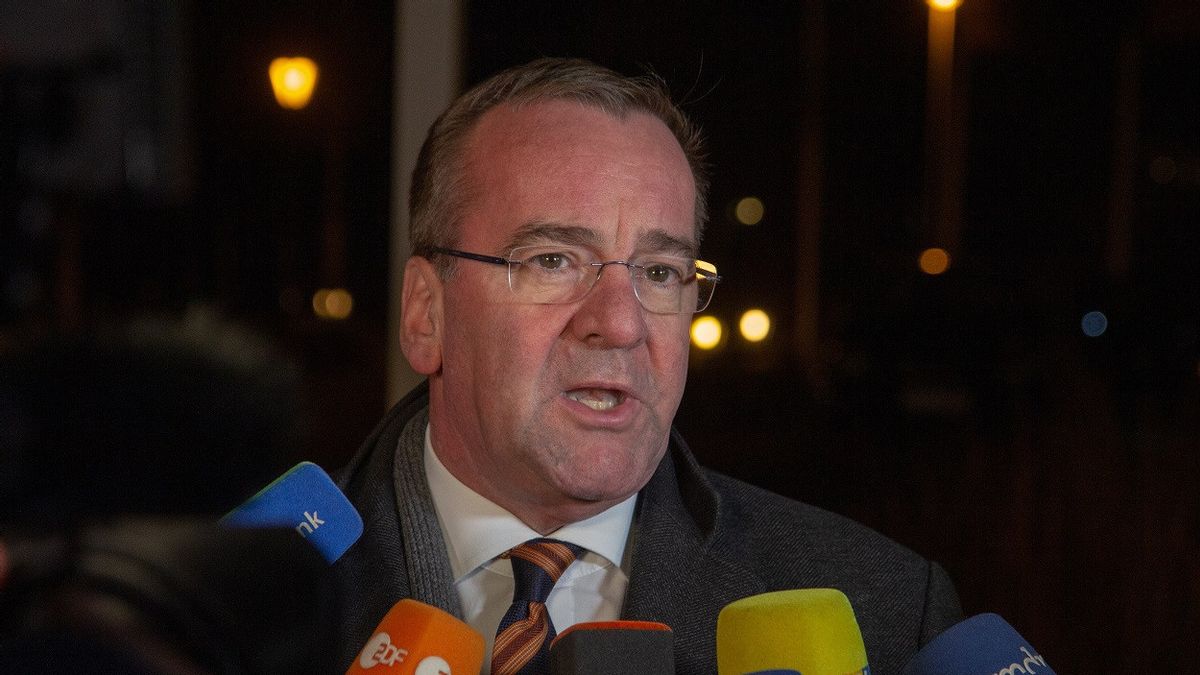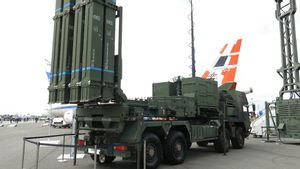German Defense Minister Boris Pistorius said on Thursday the decision to deploy a US long-range missile in Germany starting in 2026 was a response to the deployment of the Iskander tactical missile system in the Kaliningrad Region, Russia.
"What the United States will do in Germany starting in 2026 is nothing but a response to the Russian threat represented by the deployment of the Iskander missile in Kaliningrad," he said in an interview with Luxembourg-based Tageblatt newspaper.
Pistorius further said Germany had "never faced a problem with the deployment of weapons for 35 years." According to him, the existence of Uncle Sam's country missile in Germany can be explained with the need for nuclear deterrence.
"When everyone realizes Germany and NATO are able to defend themselves successfully, this will reduce the chances of an attack on us," he said.
When asked where US cruise and supersonic missiles would be stationed in Germany, he said: "It has not been decided yet."
"The US is currently making preparations for the deployment of these weapons to Germany. However, I want to make it clear: this is a conventional weapon," Pistorius said.
He added that the German leadership "will do everything possible to prevent an escalation of tensions." In his view, if "it becomes clear to everyone" that Germany and NATO are capable of defending themselves, it will reduce the chances of an attack on them.
As previously reported, the United States in a joint statement on July 10 said Washington would deploy its long-range missile in Germany by 2026, as part of its commitment to NATO and Europe's defense, the two countries said in a statement.
The "episodic placement" of the United States is preparation for long-term deployment of these capabilities that will include SM-6, Tomahawk cruise missiles, and hypersonic weapons under development that have a longer range than the current capabilities in Europe, the two countries said on Wednesday.
Ground-based missiles with a range exceeding 500 kilometers are prohibited until 2019, based on the Medium-Range Nuclear Power Treaty (INF) signed by Mikhail Gorbachev of the Soviet Union and former US President Ronald Reagan in 1987.
The agreement marks the first time the two superpowers have agreed to reduce their nuclear arsenal and eliminate the entire category of weapons.
In line with signatories, Germany, Hungary, Poland, and the Czech Republic destroyed their missiles in the 1990s, which Slovak and Bulgaria followed.
Later, the United States withdrew from the INF Agreement in 2019, saying Moscow violated the agreement, citing the development of the 9M729 land cruise missile by Russia known in NATO as the SSC-8.
SEE ALSO:
The Kremlin has repeatedly denied the allegations and later imposed a moratorium on the development of its own missile previously banned by INF agreements, ground-based ballistic and cruise missiles with a range of 500 km to 5,500 km.
"Without nervousness, without emotion, we will develop a military response, first of all, to this new game," Russian Deputy Foreign Minister Sergei Ryabkov said, responding to the US long-range missile deployment plan, calling it an escalation measure aimed at intimidating Russia.
Meanwhile, Russia's Ambassador to Washington Anatoly Antonov said the US plan was increasing the chances of a missile race and could lead to uncontrolled escalation.
The English, Chinese, Japanese, Arabic, and French versions are automatically generated by the AI. So there may still be inaccuracies in translating, please always see Indonesian as our main language. (system supported by DigitalSiber.id)


















